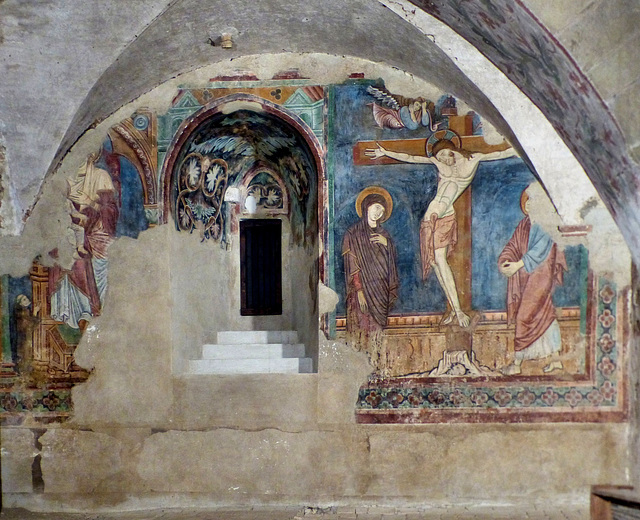Montelabate - Abbazia di Santa Maria di Valdiponte
Montelabate - Abbazia di Santa Maria di Valdiponte
Montelabate - Abbazia di Santa Maria di Valdiponte
Montelabate - Abbazia di Santa Maria di Valdiponte
Montelabate - Abbazia di Santa Maria di Valdiponte
Montelabate - Abbazia di Santa Maria di Valdiponte
Montelabate - Abbazia di Santa Maria di Valdiponte
Montelabate - Abbazia di Santa Maria di Valdiponte
Montelabate - Abbazia di Santa Maria di Valdiponte
Montelabate - Abbazia di Santa Maria di Valdiponte
Montelabate - Abbazia di Santa Maria di Valdiponte
Location
Lat, Lng:
Lat, Lng:
You can copy the above to your favourite mapping app.
Address: unknown
Lat, Lng:
You can copy the above to your favourite mapping app.
Address: unknown
See also...
Keywords
Authorizations, license
-
Visible by: Everyone -
All rights reserved
-
132 visits
Montelabate - Abbazia di Santa Maria di Valdiponte


The "Abbazia di Santa Maria di Valdiponte" ("Abbey of Montelabate") dates back to the 9th century. In 969 a Papal Bull ordered the Abbott Pietro to restore the monastery and to start there a new Benedictine convent.
Located between Perugia and Gubbio the abbey, that belonged to the Cluniac network within the 12th century, prospered over centuries, but declined from mid 16th century on, after it had become a "commanderie". The commandatory abbot recieved the abbey from the pope as a benefice and without taking up residence was entitle to the revenues of the abbey. In 1602 the abbey became the center of a large agricultural holding, before in 1749 it came into the possesion of Cistercian monks.
The Abbey suffered strongly during the Napoleonic times. After the Risorgimento it became property of the State. The huge archive was transferred to public libraries, the works of art were moved to the National Gallery of Umbria. Later it passed through several private ownerships and now it is owned by the Gerolamo Gaslini Foundation based in Genova.
The crypt is probably the oldest part of the existing structure, dating to the early 11th century. The church above the crypt was of modest dimensions, the wall of the main apse is still visible from the outside. This church got demolished, when the erection of the new, larger church started, as then building material was needed. The crypt was used then as "lower church" and, when the new church was completed and a Gothic convent building was built over the crypt, as cellar.
Some walls still have frescoes. Some scholars believe, that the (small) abbot, seen on the left on his knees, is Uguccione Monalducci (1302-1338), who may have commissioned the frescoes.
We were very lucky to join a group that had booked a guided tour through the abbey.
Located between Perugia and Gubbio the abbey, that belonged to the Cluniac network within the 12th century, prospered over centuries, but declined from mid 16th century on, after it had become a "commanderie". The commandatory abbot recieved the abbey from the pope as a benefice and without taking up residence was entitle to the revenues of the abbey. In 1602 the abbey became the center of a large agricultural holding, before in 1749 it came into the possesion of Cistercian monks.
The Abbey suffered strongly during the Napoleonic times. After the Risorgimento it became property of the State. The huge archive was transferred to public libraries, the works of art were moved to the National Gallery of Umbria. Later it passed through several private ownerships and now it is owned by the Gerolamo Gaslini Foundation based in Genova.
The crypt is probably the oldest part of the existing structure, dating to the early 11th century. The church above the crypt was of modest dimensions, the wall of the main apse is still visible from the outside. This church got demolished, when the erection of the new, larger church started, as then building material was needed. The crypt was used then as "lower church" and, when the new church was completed and a Gothic convent building was built over the crypt, as cellar.
Some walls still have frescoes. Some scholars believe, that the (small) abbot, seen on the left on his knees, is Uguccione Monalducci (1302-1338), who may have commissioned the frescoes.
We were very lucky to join a group that had booked a guided tour through the abbey.
casino, have particularly liked this photo
- Keyboard shortcuts:
Jump to top
RSS feed- Latest comments - Subscribe to the comment feeds of this photo
- ipernity © 2007-2024
- Help & Contact
|
Club news
|
About ipernity
|
History |
ipernity Club & Prices |
Guide of good conduct
Donate | Group guidelines | Privacy policy | Terms of use | Statutes | In memoria -
Facebook
Twitter

Sign-in to write a comment.